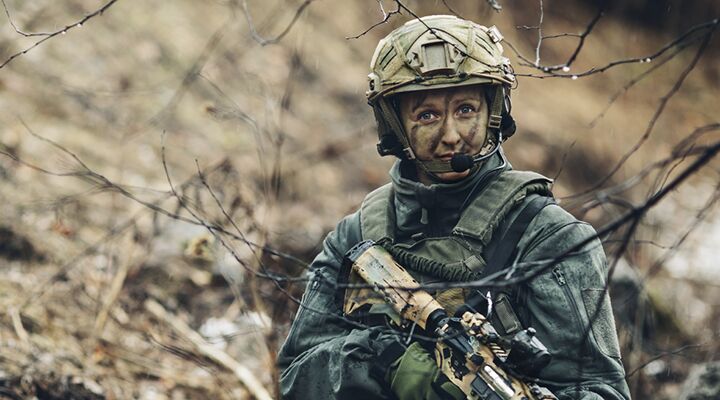
Top U.S. Military Generals Want Women to Register for Draft
The top United States military service chiefs believe women should be required to register for the draft. This comes after Defense Secretary Ash Carter announced in December that all combat jobs were to be opened for women.
Marine Corps Commandant Gen. Robert Neller said at a Senate Armed Services Committee on February 2 that “every American who’s physically qualified should register for the draft.” Army Chief of Staff Gen. Mark Milley agreed with him.
Sen. Claire McCaskill agreed with the generals: “Part of me believes that asking women to register as we ask men to register would maybe, possibly open up more recruits as women began to think about, ‘Well, the military is an option for me.’ I think it’s the right thing going forward.”
The Supreme Court in 1981 upheld Congress’s decision to exempt women from registering for the draft on the basis that women were restricted from combat roles. Now that this restriction has changed, the precedent for exempting women from the draft is gone.
Military leaders think it would take years before women are fully integrated into combat units, but General Milley projected that it would take “no less than one to three years of deliberate effort.”
Republican Sen. John McCain, the committee’s chairman, is skeptical about the decision to let women serve in all combat roles. He referred to studies that showed that women suffer more injuries than men and did not perform as well. “Rather than honestly confront these realities, some have sought to minimize them,” Senator McCain said.
Many Republicans predict that a quota of women will be called on to serve in combat positions; they fear that this would weaken units that require hand-to-hand combat. “It would endanger not only the safety of Marines, but also the safety of our nation,” Navy Secretary Ray Mabus said.
The military chiefs in favor of women registering for the draft sought to banish the idea that opening all combat jobs to women would lower standards. Sen. Tim Kaine thinks that Carter’s decision will enable future generations of women to meet standards without them being lowered. “Daughters raised today are going to be raised different than daughters 30 years ago,” he said. “When there’s a social cap or ceiling or limitation, that sort of gets absorbed by people and they don’t even focus on what they might be able to do.
“They get raised in a particular way, with the thought that that cap is going to be there. When the cap is lifted, all of a sudden there’s all kinds of possibilities and people start to focus on opportunities they might have and train themselves up for them.”
Carter’s December announcement and the current proposition to register women for the draft is being pushed in the name of progressiveness. Despite Senator Kaine’s wishful thinking, there are very real differences between men and women. As Trumpet managing editor Joel Hilliker wrote when 230,000 combat roles were opened to women in 2013:
Women face greater danger than men in most combat situations. Physical limitations make them likelier to be injured, captured or killed. This reality also endangers the men who are forced to fight alongside them. (Elaine Donnelly said bluntly, “No one’s injured son should have to die on the streets of a future Fallujah because the only soldier near enough to carry him to safety was a 5’2”, 110-pound woman.”) And when women are captured, experience has shown that they are treated far worse—unimaginably worse—than male prisoners of war. Though feminists lobby hard against rape generally, they “bravely” insist that, since women are duty-bound to serve as combat soldiers, rape in war cannot be stopped. Jessica Lynch, a poster child for women in combat, was allegedly beaten, raped and sodomized in captivity.
Read the rest of the article to learn more of the detrimental effects of women serving in the military.
